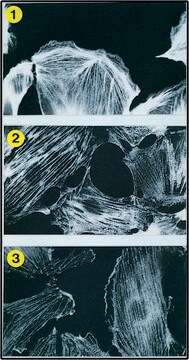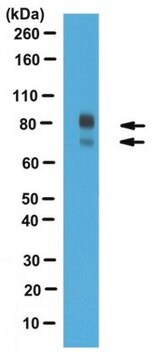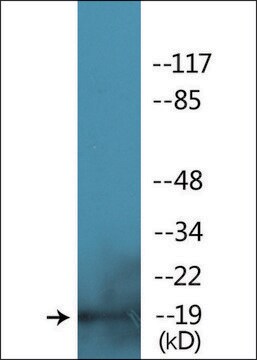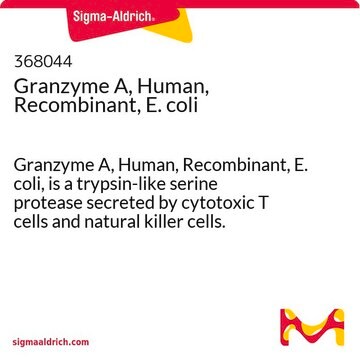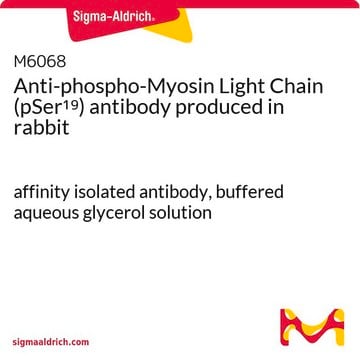SAB4200197
Anti-Periostin antibody,Mouse monoclonal
clone 47, purified from hybridoma cell culture
Synonym(s):
Periostin Antibody, Periostin Antibody - Monoclonal Anti-Periostin antibody produced in mouse, Anti-OSF2, Anti-Osteoblast specific factor 2, Anti-PDLPOSTN, Anti-POSTN
About This Item
Recommended Products
biological source
mouse
conjugate
unconjugated
antibody form
purified from hybridoma cell culture
antibody product type
primary antibodies
clone
47, monoclonal
form
buffered aqueous solution
mol wt
antigen ~88 kDa
species reactivity
human
concentration
~1.0 mg/mL
technique(s)
western blot: 2-4 μg/mL using whole extracts of HEK-293T cells over expressing human Periostin
isotype
IgG1
UniProt accession no.
shipped in
dry ice
storage temp.
−20°C
target post-translational modification
unmodified
Gene Information
human ... POSTN(10631)
General description
Immunogen
Application
Biochem/physiol Actions
Physical form
Disclaimer
Not finding the right product?
Try our Product Selector Tool.
Storage Class Code
10 - Combustible liquids
Flash Point(F)
Not applicable
Flash Point(C)
Not applicable
Regulatory Listings
Regulatory Listings are mainly provided for chemical products. Only limited information can be provided here for non-chemical products. No entry means none of the components are listed. It is the user’s obligation to ensure the safe and legal use of the product.
JAN Code
SAB4200197-VAR:
SAB4200197-BULK:
SAB4200197-25UL:
SAB4200197-200UL:
Certificates of Analysis (COA)
Search for Certificates of Analysis (COA) by entering the products Lot/Batch Number. Lot and Batch Numbers can be found on a product’s label following the words ‘Lot’ or ‘Batch’.
Already Own This Product?
Find documentation for the products that you have recently purchased in the Document Library.
Customers Also Viewed
Our team of scientists has experience in all areas of research including Life Science, Material Science, Chemical Synthesis, Chromatography, Analytical and many others.
Contact Technical Service